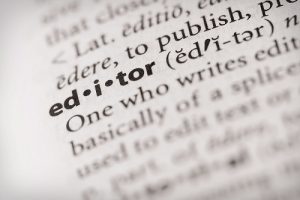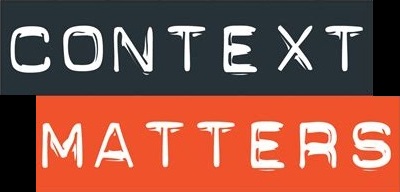If you’re struggling with the kind of burnout I experienced, or think you might be headed there, this post may help. Here are a couple of things you’re probably going to have to come to terms with, and some helpful tips to avoid winding up where I did and to help heal the damage if you’re already there.
Continue reading “Part II – How Do You Fix Burnout?”Tag: advice
Shortly after publishing Necrotic City, I returned to traditional employment to rebuild my savings. At the same time, I continued creating content for this blog and working on longer stories. It was sometimes a struggle to find time for all of it, but I still had a dream of fully supporting myself by writing, and I didn’t want to lose the progress I’d made.
Fast forward a year, and it had become apparent that the new job wasn’t much better than the last one. It was a miserable (and miserably unsafe) place to work, and I wanted out– the sooner the better. To that end, I gave Patreon a shot. I hoped that by increasing my workload for a time, I could build up enough of a following to replace the day job– or least get close enough to stage an escape.
Continue reading “Burnout Part I”If you publish content to Patreon or are considering setting up an account with them, you may be wondering what kind of content is prohibited and if there are any hidden trigger words that can get you in trouble on the site.
I urge everyone to start by reading Patreon’s Terms of Use, Community Guidelines, and Benefit Guidelines. Then I’ll shed a some light on what’s not covered in Patreon’s public documentation.
What sparked this post? Well, when I went to upload Scrapyard Spiders, I received this message via a yellow notification box at the bottom of my draft.
“It looks like you might be promoting a raffle, which is outside of our Benefit Guidelines. Check out our blog post for more information, and email us if you have any questions.”
Wait… what?
Continue reading “Patreon Flagged My Post as a Game of Chance”We make a lot of sacrifices in the service of becoming successful. We sacrifice leisure time to take on additional duties at work or spend more time writing. We sacrifice time with our friends and loved ones. We sacrifice our hobbies and the things we do for fun. We sacrifice our health, both mental and physical.
But it’s worth it, right? If we just work hard enough, one of these days it’s all going to pay off. We’ll be able to pay off our student debt, or afford to buy a house, or be able to send our kids to college, or land a book deal that we can support ourselves with, or develop a big enough following that we can live off the proceeds…
We spend our lives following this mirage of success. One day it’ll pay off. One day we’ll get where we’re going, and we’ll finally be able to relax, catch up with friends, spend time with our loved ones, and do the things we enjoy. People chase this mirage until the day they die– which is likely to happen sooner rather than later if you never give yourself a chance to relax.
We need to talk about this.
Recently someone I know asked, How important is it to have positive male role models in your work?
I find this question interesting on a number of levels. The first is the obvious qualifier: male role models.
I and my childhood friends may have grown up in the ‘80s, but we escaped a lot of the gendered BS– You know, the that’s for girls/boys, you can’t have that. Or, you can’t act/dress like that, people will think you’re a *gender other than the one you were assigned at birth.* (Not to say that those attitudes weren’t, and aren’t, still alive and well– just that we escaped them.)
So I find the emphasis on male role models peculiar. Wouldn’t a good role model be a good role model for everyone? Or are we specifically talking about good examples of how to be male? The latter seems weird and unnecessary.
As a child, I looked up to a wide range of characters. I liked Aragorn in The Lord of the Rings, but I also greatly admired the crew of the Pride of Chanur in CJ Cherryh’s Chunar Saga. I considered both Morgaine and Nhi Vanye, of Cherryh’s Morgaine Cycle, to be equally good role models. *
Good science fiction smashes the pointless constructs of our present day and age, or turns them on their ear, or points out where we are headed if we continue on as we are. Like it or not, gender roles are one of those constructs. I think it’s more important that a main character be a relatable person with positive attributes than a good male/female role model.
If you remove the gender qualifier, you have another interesting question. How important is it to have positive role models in your work? And the answer is, I’ve never really thought about my characters like that.
I generally want my main characters to be people the reader can both associate with and look up to. Basically, if someone loved my work so much that they tried to emulate one of my main characters, would it make the world better or worse? I enjoy writing characters that would make the world a better place if they were real.
I definitely think that characters which exemplify positive characteristics, without being unrealistic, are important. Art is a reflection of society; but at the same time, society is absolutely influenced by the art and media it consumes. Authors have something of a responsibility to leave the world a better place than we found it– not only by giving readers an escape from the horrors of the world, but also by showing how people can make the world a better place.
*Editor’s note: sorry for the Wikipedia links, but they’re the easiest place to find all the info about a book’s characters, setting, and plot in one place.
This article examines a small, empathy-deficient subset of the writing community. However, the advice given can help anyone who wants to ensure that their characters possess depth and realism.
Have you ever read a book where the protagonist, no matter who he’s supposed to be, sounds like an old conservative white guy? And you think, Ok, he’s not very relatable. In fact, he’s kind of a jackass. But maybe this character’s going to learn something and grow into a better person as the story progresses.
Then you realize that the plucky young Latina sidekick also sounds like an old conservative guy. And so does the working-class Joe who helps them escape from the antagonist. And the down-on-her luck single mother at the diner who waits on them. And their cab driver… And you start to feel like, instead of writing a flawed protagonist, the author is maybe only capable of writing one type of character. And that character is very flawed indeed.
The problem is, the author doesn’t realize it because (surprise twist) he’s an old conservative white guy.
Continue reading “Creating Realistic Characters: Empathy Is Essential”

Last week I explained why editing is essential to the publishing process and how to go about snagging your very own helpful editor. This week I’m going to explain some money-saving shortcuts you can take to reach a professional, polished final product without breaking the bank.
While you should never forgo professional editing entirely, there are plenty of things you can do to produce a cleaner manuscript that will require less professional help.

Continuing from last week’s post, where I talked about the reason some writers are wary of editors, this week I’m going to explain how to find an editor of your own. (Or editors, if that’s how you roll.)
Editing is an essential part of preparing your work for publication, whether you write short stories, novellas, or full length novels. No matter how strong your-self editing game is, a manuscript can always benefit from a second, trained set of eyes.
Here’s why.
Continue reading “How to Catch an Editor And Why You Should”

If you ask a random sampling of indie authors how they feel about editors, you’ll probably get a wide range of responses.
Some have worked with editors they loved from the start. Some had a few false leads before they found the right editor. And many have a notebook full of advice on what (and occasionally who) to avoid. (That advice can vary from author to author, especially on the subject of what an editor should charge.)
Lastly, especially among the unpublished and those who haven’t worked with an editor, you’ll probably find a surprising amount of distrust and dislike. Some people attribute this to fear of criticism. The thing is, it’s not that simple.
Continue reading “Editors: Trust, Confidentiality, and Mutual Respect”

It’s common knowledge that for people with post traumatic stress, post traumatic stress disorder, or complex PTSD, common social situations can cause unexpected reactions. For example, most of us have known a veteran who religiously avoided crowds or went out of town around fireworks holidays.
Some people may see this as an illogical reaction to a harmless situation, but context is important. To you, the crack and boom of fireworks mean good times and excitement. For them, the sound of exploding shells may mean “Incoming! Take cover!!” A seemingly benign situation can have vastly different connotations in the context of our individual experiences– and none of those interpretations are necessarily wrong.
In this post I explain why– but first, a little background.